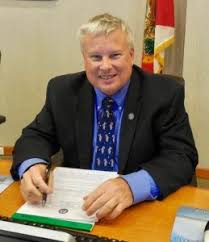Dale Martin
City Manager
Fernandina Beach
July 14, 2017 1:00 a.m.

Following the publication of my article last week, Property Appraiser Michael Hickox offered a few clarifications that I will share. First, Florida’s Homestead Exemption is not automatic: homeowners must apply for the exemption. Second, the exemption is variable based upon the Assessed Value, with homes valued at $50,000 or less eligible for only a $25,000 exemption; homes valued between $50,001 and $74,999 eligible for $25,000 and a portion of an additional $25,000; and homes valued at $75,000 or more eligible for the full $50,000 exemption ($25,000 for school taxes and $25,000 for non-school taxes). The proposed constitutional amendment adds an additional $25,000 exemption for non-school taxes for properties valued at $100,000 or more).
Finally, property values within a community do not increase (decrease) uniformly: an increase (decrease) in a community’s value is an aggregate calculation: some properties may increase and others may decrease. For example, the City’s comparable taxable value (which does not include new construction and various improvements) is anticipated to increase by approximately 10.4 percent. This does not mean that everyone’s property values increased by 10.4 %: some were higher; others lower.
As I indicated last week, local government financing is somewhat complex. Most citizens are never educated as to how such financing works, so it is truly helpful to have professional assistance available through the Property Appraiser’s office if you desire additional information.
Since the City’s budget is based upon the aggregate taxable value of the community, let me provide additional information related to that value. The document upon which the annual taxable value information is provided to the City is Florida Department of Revenue Form DR-420. The information in Section 1 of the DR-420 is completed and certified by the aforementioned Property Appraiser, Mr. Michael Hickox. The remainder (Section 2) is completed by City officials and certified by the Chief Administrative Officer (for Fernandina Beach, the City Manager) after the City Commission establishes the millage rate for the fiscal year.
The current year’s gross taxable value for the City of Fernandina Beach is $2,020,560,248. The majority of the property associated with this value is real property: $1,713,986,665. Personal property accounts for nearly all the remainder.
For a historic perspective, surpassing the $2 billion is somewhat reflective of the City’s recovery from what is often referred to as the Great Recession (2007-2009). In 2007, the City’s taxable value peaked at $2.04 billion, then tumbled before bottoming at $1.53 billion in 2013. The increase since then has been consistent: approximately $100 million annually. This year’s increase, though, was over $200 million, an increase of almost twelve percent.
This increase in value does not, in and of itself, generate additional revenue to the City. It has been erroneously reported that the growth will produce additional billions of dollars for the City. The actual revenue to be produced will be a factor of the taxable value and the millage rate established by the City Commission. In general, property tax revenue will provide approximately $11,000,000 to $12,000,000 for City operations, personnel, and projects.
Property tax revenues fund primarily General Fund activities. Property tax revenues also support previously approved debt service. Property taxes do not support most of the City’s Enterprise Funds- departments and operations that typically rely upon user charges to fund operations. The City’s Water, Wastewater, Sanitation, and Airport Departments have solid financial bases, and, in some cases, transfer funds to the General Fund to provide additional support for other City operations.
The Stormwater Department is just now getting established to address long-neglected stormwater issues, so the finances of that department are still in developmental infancy. The Marina and Golf Course, however, still require General Fund support- a transfer of funds to sustain operations. I have indicated to representatives of the associated management companies- Billy Casper Golf and WestRec- that, other than debt service, General Fund support will cease no longer than five years from now. This directive will likely result in changes to the current user rate structure. As an enterprise fund, it is necessary for the users of those facilities to bear the cost of operations, not general taxpayers who may not avail themselves of the services provided at those facilities. I expect that the management companies will make the necessary changes.
I will provide a brief overview of the 2017-2018 budget at Tuesday’s City Commission meeting- just the next step in this challenging annual exercise. I look forward to sharing more of the process with you over the next few months.
